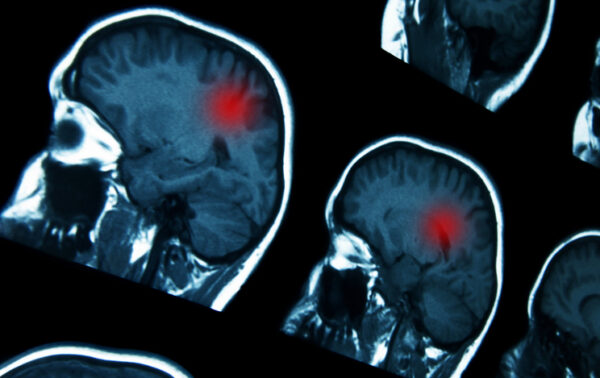
Shares of a company developing a two-part brain cancer drug therapy collapsed Thursday morning after it announced the failure of a closely watched clinical trial.
San Diego-based Tocagen said results of its Toca 5 study of Toca 511 and Toca FC in patients with recurrent high-grade glioma failed to meet its primary endpoint of extending overall survival.
Shares of Tocagen were down more than 80 percent in premarket trading on the Nasdaq Thursday morning. They opened at 75 cents per share, down 82.3 percent from their Wednesday closing price of $4.18.
The study randomized 403 patients with anaplastic astrocytoma or glioblastoma multiforme. Patients in the treatment arm received Toca 511, a retroviral replicating vector that infects cancer cells and inserts a gene for the enzyme cytosine deaminase, followed by the prodrug Toca FC, which the enzyme then converts into an anticancer drug designed to kill the cancer cells and immune-suppressive myeloid cells. The combination was compared with standard of care treatments, including temozolomide, lomustine and Roche’s Avastin (bevacizumab).
According to data from the trial, patients receiving Toca 511 and Toca FC had a median overall survival of 11.1 months, compared with 12.2 months for those on the standard of care. The hazard ratio, 1.06, likewise indicated a slightly greater hazard of death among patients receiving the combination. The study also did not show a difference between the arms on secondary endpoints.
Although the difference was not statistically significant, B. Riley FBR analyst George Zavoico wrote in a note to investors that it was concerning to see that median overall survival was shorter in the Toca 511-Toca FC group than in the control group. He wrote that the company may end up restructuring and delaying further clinical trials pending an analysis of Toca 5, which may inform protocol amendments to enhance its probabilities of success.

A Deep-dive Into Specialty Pharma
A specialty drug is a class of prescription medications used to treat complex, chronic or rare medical conditions. Although this classification was originally intended to define the treatment of rare, also termed “orphan” diseases, affecting fewer than 200,000 people in the US, more recently, specialty drugs have emerged as the cornerstone of treatment for chronic and complex diseases such as cancer, autoimmune conditions, diabetes, hepatitis C, and HIV/AIDS.
“Recurrent brain cancer represents a very high unmet medical need, and patients with this disease have very few treatment options,” Tocagen CEO Marty Duvall said in a statement. “While the Toca 5 trial results are disappointing, we will be conducting a thorough analysis of the data, including molecular anlayses and preplanned subgroups.”
Indeed, brain cancer – especially its highest-grade forms like GBM – remains among the most stubborn of cancers. Median overall survival is less than two years from diagnosis, and even after surgical removal of the tumor and drug treatment, it inevitably recurs. Temozolomide, which has long been generic, was the last drug in GBM to improve overall survival (OS), considered the gold-standard clinical endpoint, though Novocure’s Optune device can also extend survival. Avastin is known to halt progression of the disease, but has never been shown to improve OS. Nevertheless, Avastin won full Food and Drug Administration approval in 2017 after spending years on the market under accelerated approval, being commonly used in recurrent GBM.
The news about Tocagen comes a week after Bristol-Myers Squibb said that its Phase III CheckMate-548 study of PD-1 checkpoint inhibitor Opdivo (nivolumab) failed to meet one of its two primary endpoints, progression-free survival, in GBM with MGMT methylation, a biomarker that studies have suggested can predict the likelihood of response to therapy. Nevertheless, CheckMate-548’s data monitoring committee recommended that the trial continue to allow data for the other primary endpoint, OS, to mature. Another BMS Phase III study, CheckMate-498, failed in patients with MGMT-unmethylated disease earlier this year.
Photo: goglik83, Getty Images













